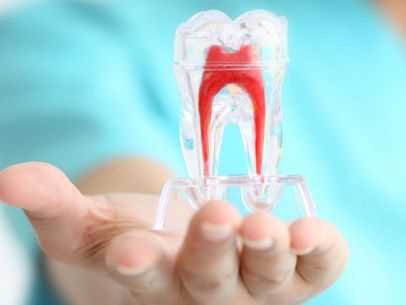
Pain Management In Root Canal Treatment

Root canal treatment, a dental procedure aimed at saving a damaged tooth, is often accompanied by concerns about pain and discomfort. In this article, we'll delve into the intricacies of pain management in root canal procedures, exploring techniques, advancements, and holistic approaches to ensure a pain-free experience for patients. If you are looking for root canal treatment in Kondapur do consider Elite Dental Clinic for best care of your oral health.
Understanding Root Canal Pain
Root canal pain can be attributed to various factors, including the inflammation of the tooth's pulp, nerve sensitivity, and patient anxiety. Acknowledging the sources of pain is crucial in developing effective pain management strategies.
Local Anesthesia in Root Canal Procedures
Local anesthesia serves as the cornerstone of pain management in root canal treatments. Dentists carefully administer anesthetics to numb the affected tooth and surrounding tissues, ensuring patients are comfortable throughout the procedure.
Topical Anesthesia: Numbing the Surface
Before the main injection, topical anesthesia is applied to the surface of the gums. This not only numbs the injection site but also minimizes the discomfort associated with the initial needle prick.
Administering Intraoral Anesthesia
Various techniques are employed to ensure the effectiveness of intraoral anesthesia. Dentists may use slow injections, buffering agents, and warming the anesthetic solution to enhance patient comfort during the injection process.
The Role of Sedation in Pain Management
For patients with heightened anxiety or a low pain threshold, sedation becomes a valuable tool in pain management. Options such as nitrous oxide or oral sedatives provide a relaxed state while maintaining awareness.
Preventing and Managing Post-Operative Pain
Beyond the procedure, strategies to prevent and manage post-operative pain are essential. Dentists may recommend over-the-counter pain relievers, prescribe medications, and provide guidelines for at-home care to minimize discomfort.
Advancements in Technology for Pain-Free Root Canals
Innovations in technology have revolutionized pain management in dentistry. Laser technology enables precise and minimally invasive procedures, while computer-assisted anesthesia ensures accurate administration for optimal effectiveness.
Addressing Patient Concerns and Fears
Effective communication is key in alleviating patient concerns and fears related to pain. Dentists must create a supportive environment, explain procedures thoroughly, and offer assurance to build trust and reduce anxiety.
Patient Education on Pain Perception
Educating patients on pain perception helps manage expectations. By discussing the psychological aspects of pain, dentists empower patients to approach the procedure with a clearer understanding, fostering a more positive experience.
Holistic Approaches to Pain Management
Holistic practices, including relaxation techniques, mindfulness, and acupuncture, can complement traditional pain management methods. Integrating these approaches addresses the patient's overall well-being during the root canal process.
Importance of Follow-Up Care
Post-treatment care is vital for long-term success and patient satisfaction. Dentists should monitor patients for any signs of discomfort, provide additional support if needed, and ensure a smooth recovery.
The Future of Pain Management in Dentistry
Ongoing research and innovations promise an even more pain-free future for dental procedures. From advanced anesthetics to groundbreaking technologies, the dental industry continues to prioritize patient comfort and satisfaction.
FAQs
Q: Is root canal treatment always painful?
No, with modern pain management techniques, root canal treatments are typically not painful.
Q: How long does the numbness last after a root canal procedure?
The duration of numbness varies but generally wears off within a few hours.
Q: Are there any natural remedies for post-root canal discomfort?
While over-the-counter pain relievers are common, consult your dentist for personalized recommendations.
Q: Can I drive home after a root canal procedure with anesthesia?
It's advisable to have someone accompany you, as the effects of anesthesia may impair your ability to drive.
Q: What should I do if I experience prolonged pain after a root canal?
Contact your dentist promptly; persistent pain may require further evaluation and intervention.
Author Bio
Article Comments
No Comments!
At present there are zero comments on this article.
Why not be the first to make a comment?
Similar Articles
Search Pages
User Upgrade
account to full use of editor,
Including hyperlinks
Article Categories
There are zero sub-categories in this parent category.
There are zero sub-categories in this parent category.

















